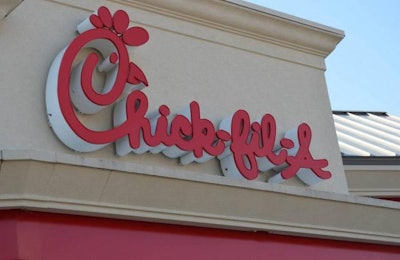
Darling Ingredients is partnering with Chick–fil–A, Inc. to convert the restaurant chain’s used cooking oil into cleaner burning renewable transportation fuel.
Darling Ingredient’s service brand DAR PRO Solutions will collect used cooking oil from all 2,660 restaurants in the U.S. and Canada.
“We admire Chick–fil–A’s commitment to reducing food waste and are proud to be part of a solution that keeps food waste out of our landfills while delivering a renewable fuel that reduces GHG emissions,” said Sandra Dudley, Darling Ingredients Executive Vice President, Renewables and U.S. Specialty Operations, in a statement released March 21.
“Darling Ingredients Inc. is the largest publicly traded company turning food waste into sustainable products and a leading producer of renewable energy,” according to the company website. It operates 250 plants in 17 countries and repurposes nearly 10% of the world's meat industry waste streams into value–added products, such as green energy, renewable diesel, collagen, fertilizer, animal proteins and meals and pet food ingredients, according to the company’s website.
The 50 Sustainability and Climate Leaders project also recognized Darling Ingredients as a sustainability leader.
According to the DAR PRO Solutions website, the company offers four services:
- The collection and storage of used fryer oil,
- Grease trap cleaning,
- A line of grease collection equipment called UCO Systems
- And the collection and repurposing of meat byproducts.
Through Darling Ingredients’ Diamond Green Diesel venture, the renewable energy company processes hundreds of millions of pounds of used cooking oil into diesel fuel, according to the statement.
The Diamond Green Diesel processing plant is located in Norco, Louisiana and produces 290 million gallons of diesel fuel per year, according to the website. The company is expected to increase that to 700 million gallons by the end of 2022, which would reduce greenhouse gas emissions by 85%, according to the statement.
















